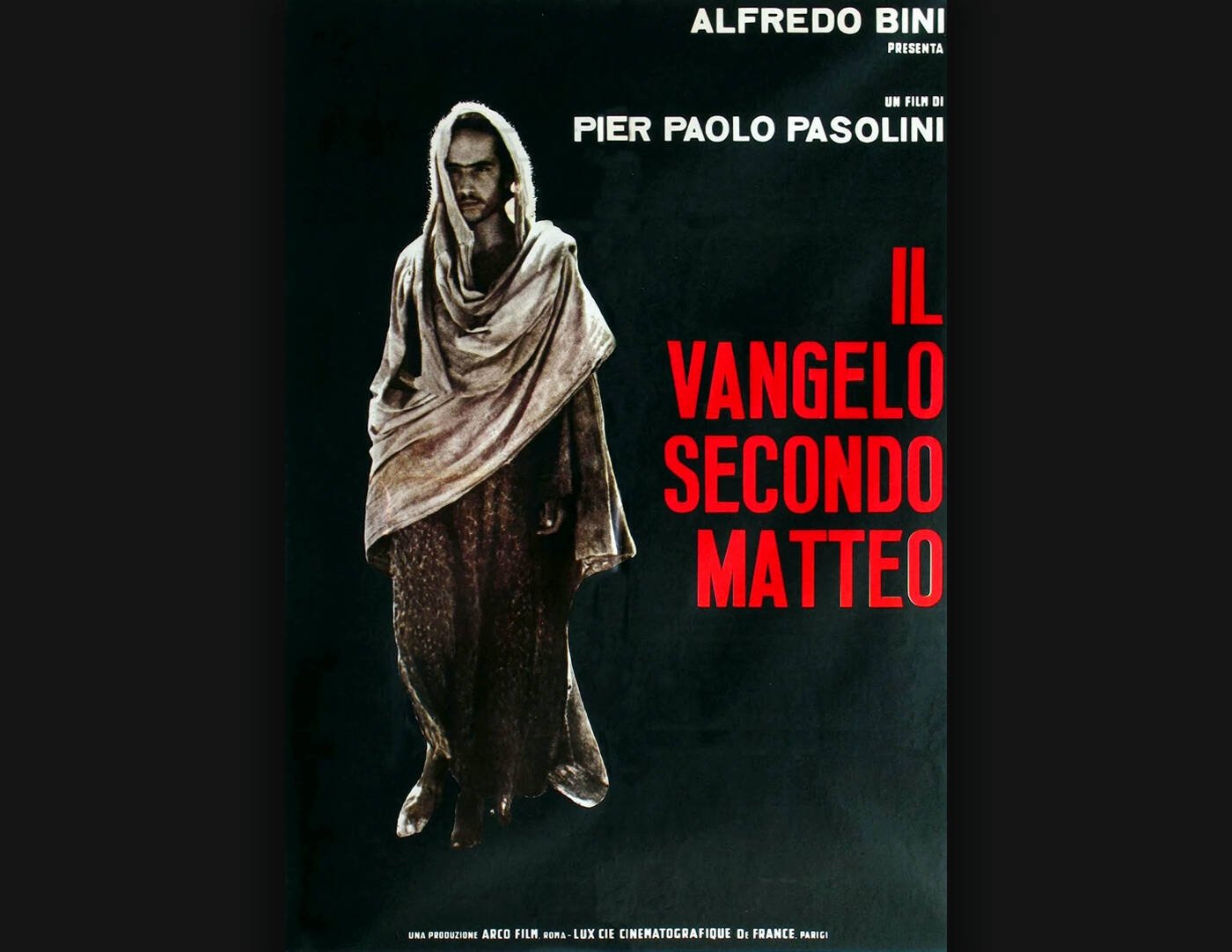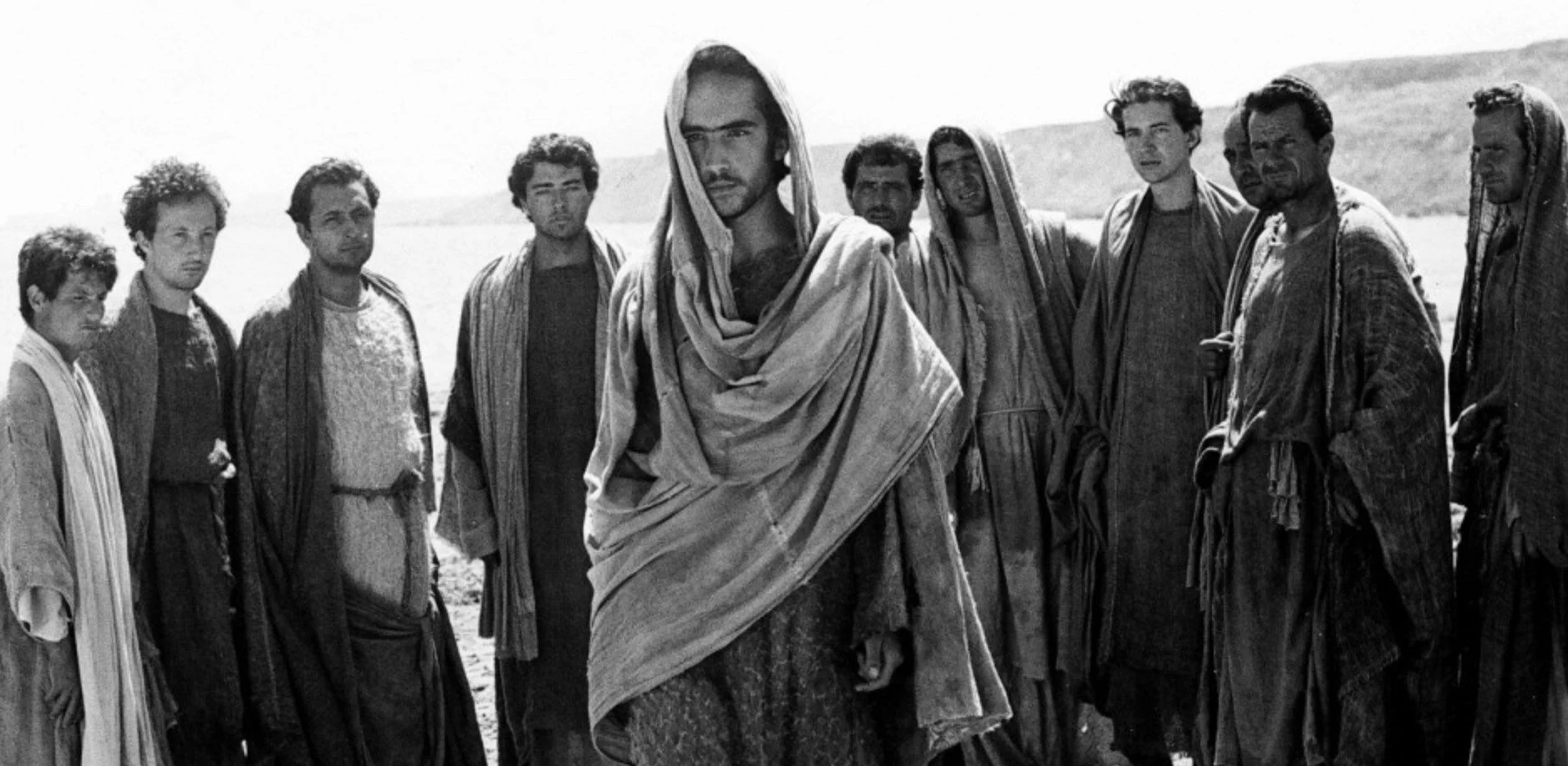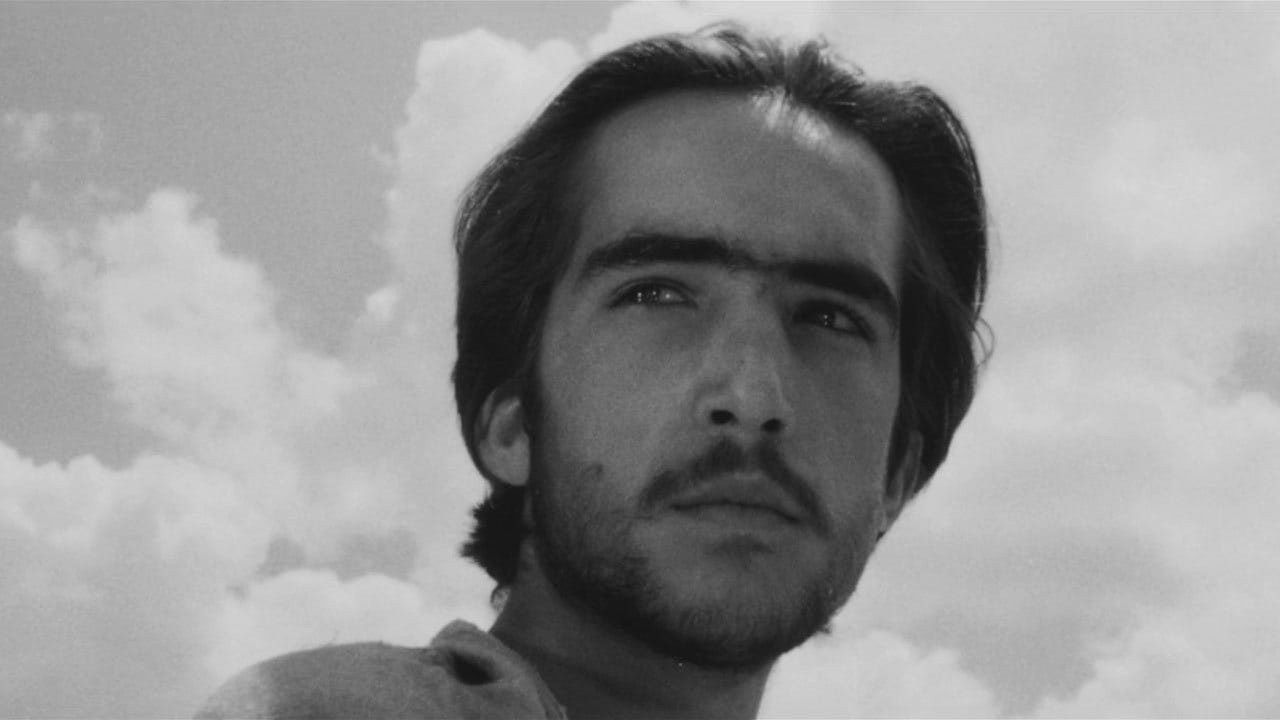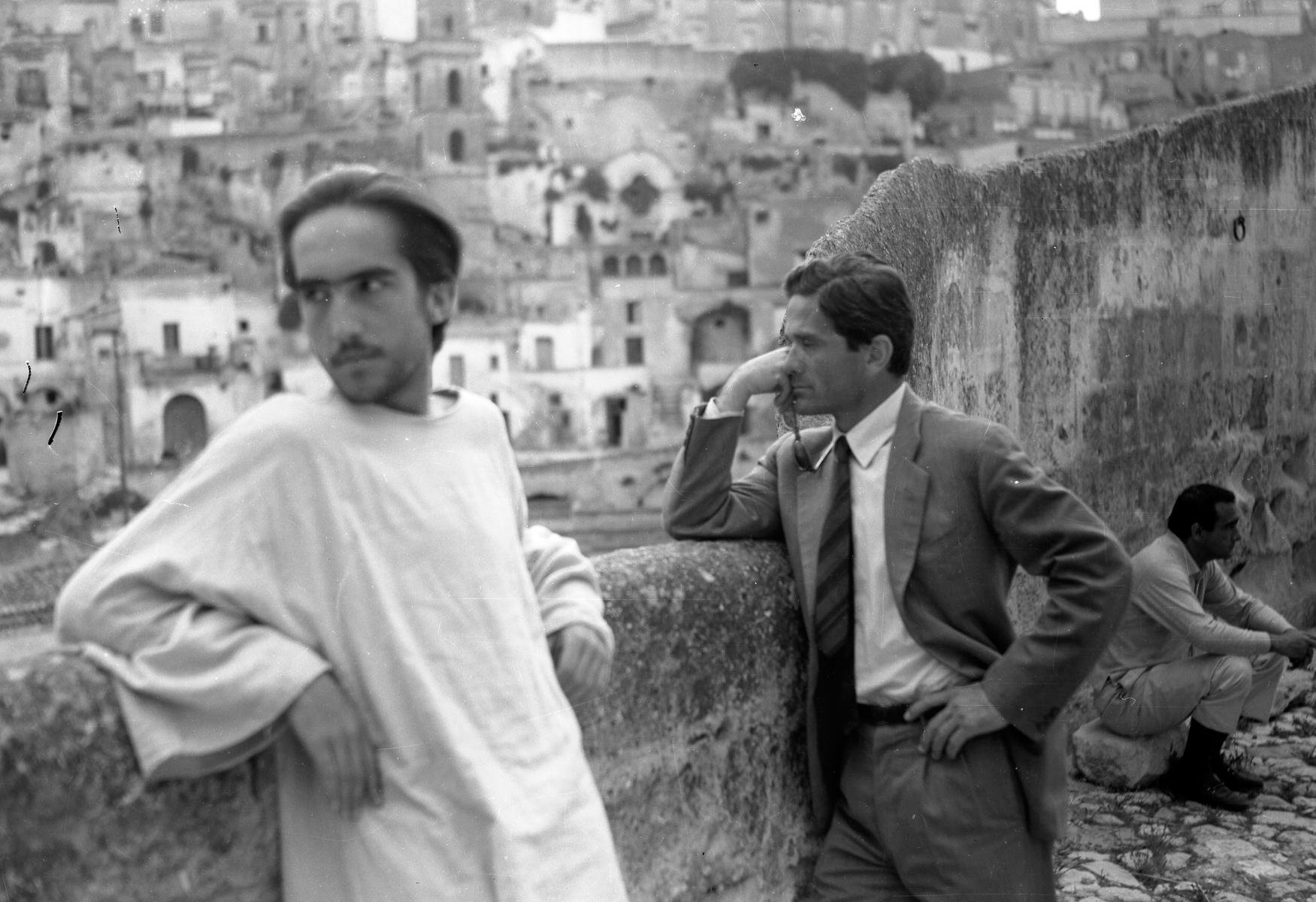THE GOSPEL ACCORDING TO ST. MATTHEW (1965, Pasolini, Italy) by Craig Hammill
It is a profound cinematic irony that possibly the greatest movie ever made about Jesus was made by an atheist.
Pier Paolo Pasolini, rebel Italian moviemaker, committed Communist, troublemaker, made THE GOSPEL ACCORDING TO ST. MATTHEW in 1964.
In 2015, the Vatican's own newspaper L'Osservatore Romano named it the best movie about Christ ever filmed.
But Pasolini's reasons for making the movie and the effect of the movie itself are more mysterious, moving, and direct than you might think.
First, the movie.
THE GOSPEL ACCORDING TO ST. MATTHEW is exactly what it purports to be. The movie tells the story of Jesus's life from birth to adulthood to crucifixion to resurrection.
It only uses text and stories from Matthew's gospel. Pasolini chose this gospel because he felt it was the most direct. Pasolini felt Mark's was too vulgar, Luke's too sentimental, and John's too mystical.
It's also interesting to note that Matthew's gospel was the gospel written closest to the actual time of Christ's life.
Pasolini tells the story in a very direct, simple yet cinematic style. And many have noted that the beautiful yet rough, working class neorealist style (accomplished by famous Italian lenser Tonino Delli Colli-Leone's DP) is the perfect approach to such transcendent material.
In a way that would have been hard to predict, the stripped down straightforward style (influenced by Matthew's own straightforward gospel style) balances the spiritual subject matter.
Billy Wilder once said it is best to make a movie one of two ways: you can make a complicated story in a simple style or a simple story in a baroque style. But you should never make a complex movie in a complex style, etc.
The necessary balance and balast at the center of so much great art is often an act of intuitive genius that defies common wisdom. Pasolini demonstrates just such an intuitive genius here.
The movie itself is a joy to watch. Always engaging. Surprisingly fast moving. The actors almost all have captivating, lived in faces. This is a working class world of the poor, the outcast, the forgotten.
Pasolini also devotes a large amount of the movie's running time on Jesus's actual teachings. There are extended sequences where Jesus preaches the beatitudes, tells parables, rails against the rich and powerful who blasphemy the lessons of love, non-judgement, acceptance that are at the heart of Jesus's Christianity.
It's tempting to say that Pasolini made the movie because so much of Jesus's teaching appear to be anti-capitalist. As a communist, Pasolini must have enjoyed pointing out to an increasingly materialist and money obsessed Western culture that claimed to follow Christ that Christ himself said explicitly, "It will be harder for a rich man to go through the gates of heaven than for a camel to go through the eye of a needle."
And certainly anyone who has interest in the Jesus story from a narrative or sociological or historical perspective sees elements of a Jesus who was a clear rebel, resistance fighter, consumed with the passion and energy of a young person who has not yet fully absorbed all the contradictory feelings of their teachings.
For anyone who studies Jesus's teachings, there ARE contradictory messages that have always seemed to clash. One moment he says he comes not to bring peace but to tear children apart from their parents. Then in another moment (closer to his own death), he teaches that the most important commandment is to love God and second only to that, to love thy neighbor as thyself.
What is inscrutable (in the best way) about the Pasolini movie is that Pasolini clearly has some kind of connection to this material beyond the political. The movie is simple but affirms the miracles and resurrection. It is direct yet embraces the mysterious power of faith.
Therefore, it's interesting to note that Pasolini himself WAS a fervent Christian in his youth. And though he described himself as an atheist, he seemed to retain a fascination and respect for belief.
When a journalist called Pasolini a "non-believer", Pasolini responded "If you know that I am an unbeliever, then you know me better than I do myself. I may be an unbeliever, but I am an unbeliever who has a nostalgia for a belief."
The movie is so powerful and moving and true to the gospels that Martin Scorsese himself, upon seeing it, abandoned his young idea to make a movie about Jesus in a modern day 1960's lower East side New York. Scorsese just felt he couldn't best Pasolini's approach.
Of course twenty three year later, Scorsese himself would make his own movie about Jesus, the masterful THE LAST TEMPTATION OF CHRIST (1989). Scorsese chose to adapt the Greek novel by Nikos Kazantzakis which re-imagined the stories of the gospels in a fresh, innovative way.
And as this writer writes this, Scorsese, at 81 years old, is working to find a take to make the story, teachings, and example of Jesus fresh, accessible, entertaining, and engaging in a new 80 minute movie he hopes to shoot in 2024.
It's a somewhat helpless and daunting task to try to write about the spiritual, the religious, and the transcendent. Such writing often comes off as insular, naive, tribal, selective, and incomplete.
Folks moved by the stories of Christianity might find their own faith only strengthened by an openness to the equally beautiful stories of Buddhism, Islam, Judaism, Hinduism, indigenous religions, etc.
At least this writer has. Many holy people of different religious traditions often note that all of us are just going up different paths on the same mountain.
And this writer personally feels that any religious or spiritual understanding only benefits from consideration and contact with agnostic and atheist points of view.
Every person holds a little puzzle piece of the truth. While the puzzle is never anywhere near complete, the more little puzzle pieces you can aggregate and connect through humble respect, consideration, and listening, the more a better fully realized understanding comes together.
So an atheist filmmaker making the best movie about Jesus Christ makes all the sense in the world ultimately.
Happy Easter.
Craig Hammill is the founder.programmer of Secret Movie Club.






